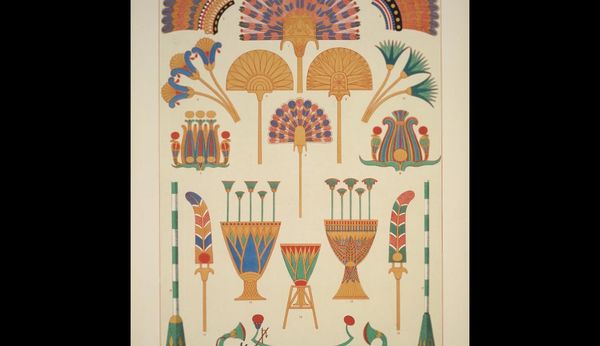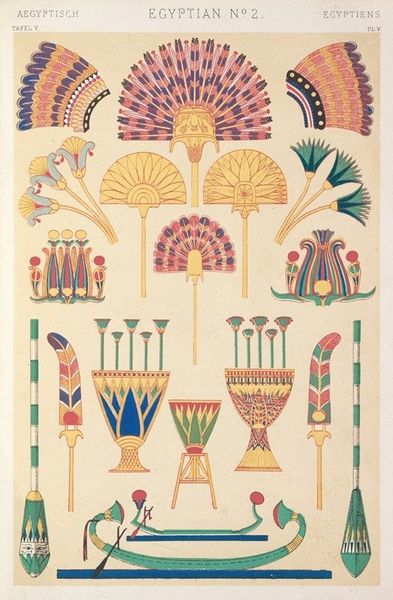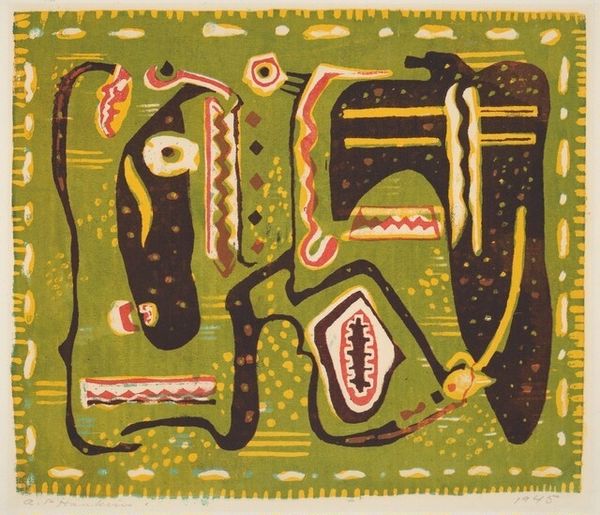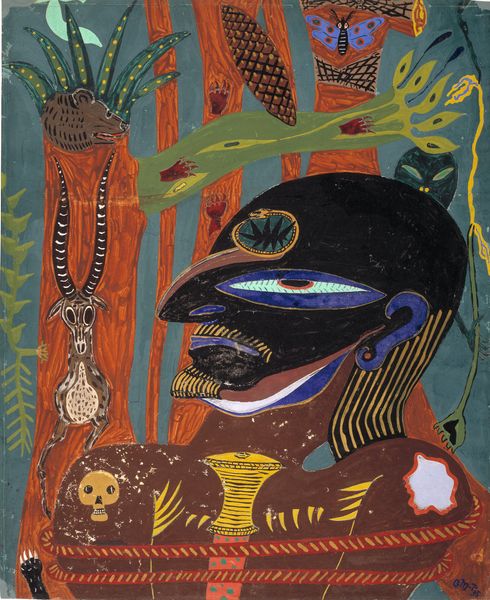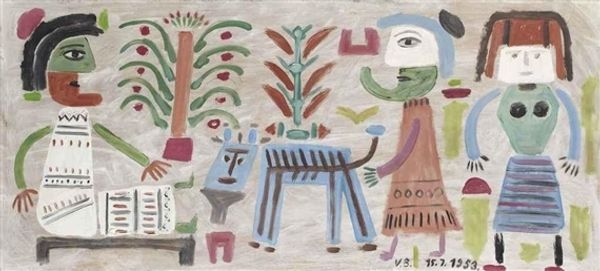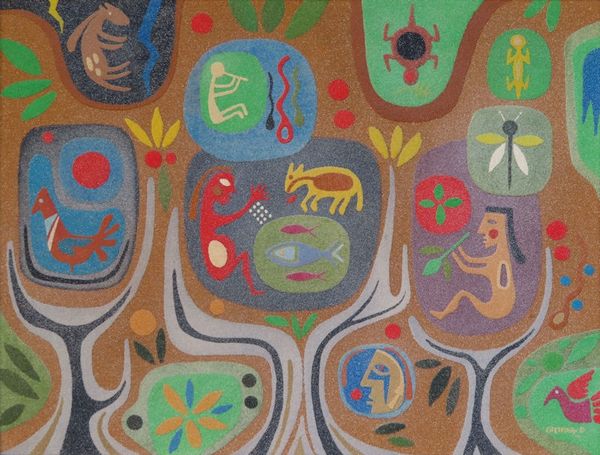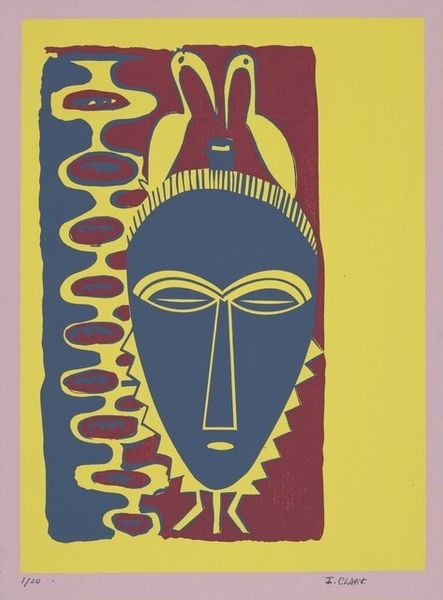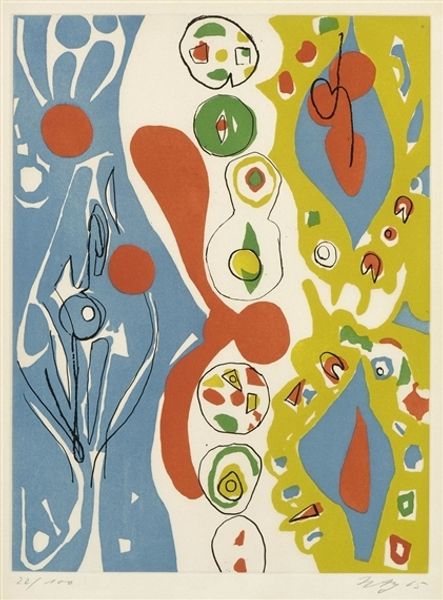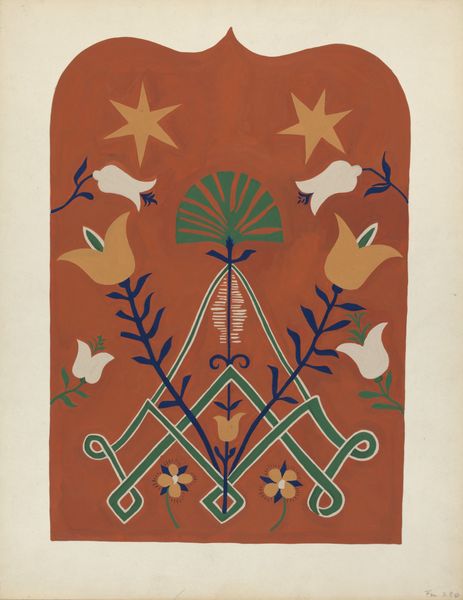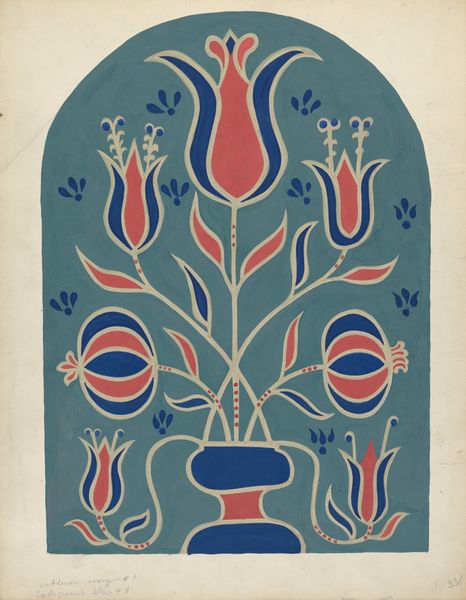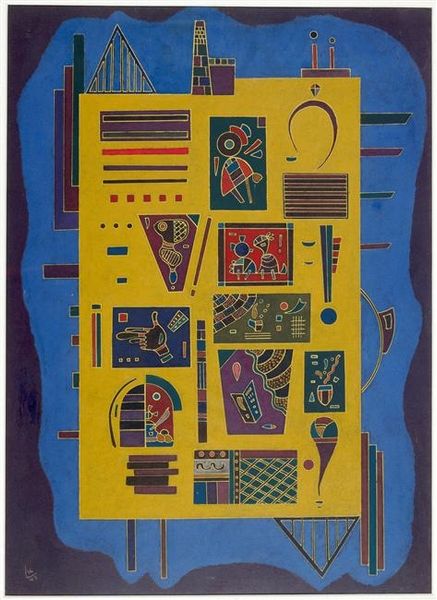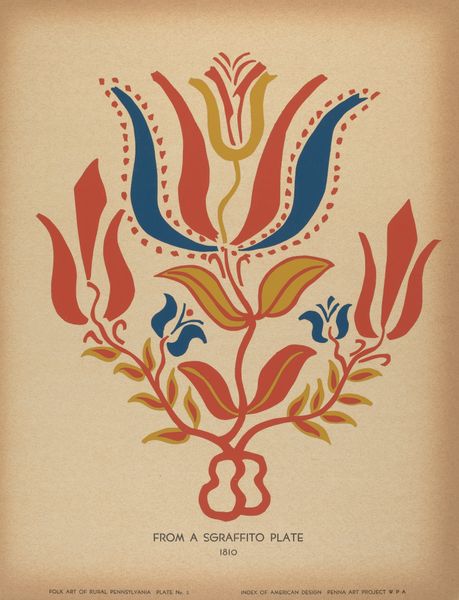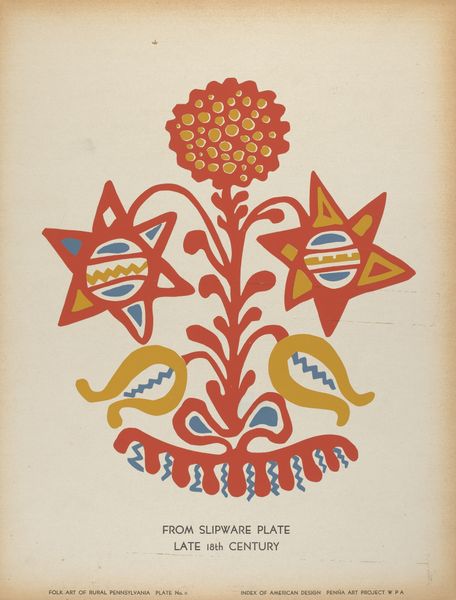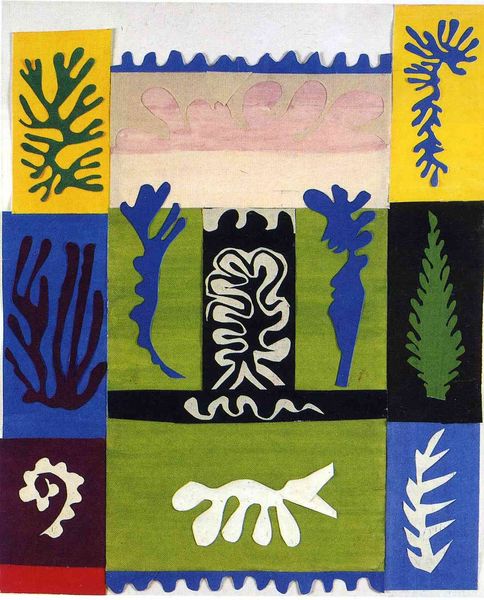
graphic-art, print
#
graphic-art
# print
#
geometric
#
orientalism
#
islamic-art
#
decorative-art
Copyright: Public Domain: Artvee
Owen Jones created “Egyptian No. 1” as a lithograph that catalogues the floral designs of ancient Egypt. Jones was a central figure in the 19th-century design reform movement, which sought to improve the aesthetic quality of manufactured goods. This print is from Jones’s seminal publication, “The Grammar of Ornament,” which presented detailed illustrations of decorative patterns from various cultures, including Egypt. Jones believed that by studying historical designs, contemporary designers could create more beautiful and functional objects. Notice the lotus and papyrus, plants that were deeply symbolic in ancient Egyptian culture, representing creation, rebirth, and the life-sustaining power of the Nile. Jones's meticulous rendering reflects a fascination with ancient Egypt, fueled by archaeological discoveries and a romanticized view of its civilization. This print reveals the West’s selective embrace of other cultures, often extracting motifs while disregarding their original cultural significance. What emotions arise when you consider the complexities of cultural appropriation and the power dynamics inherent in such exchanges?
Comments
No comments
Be the first to comment and join the conversation on the ultimate creative platform.
